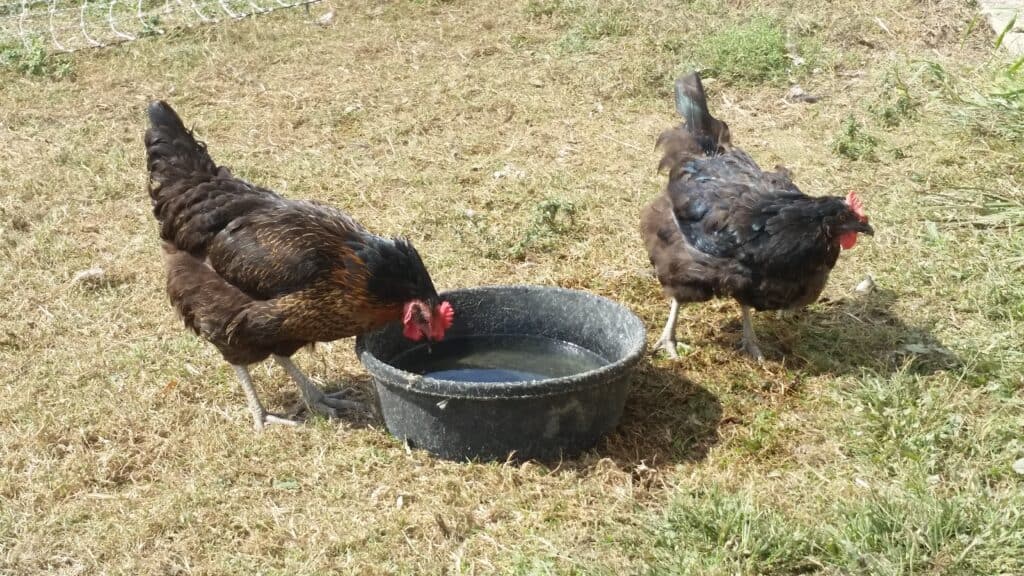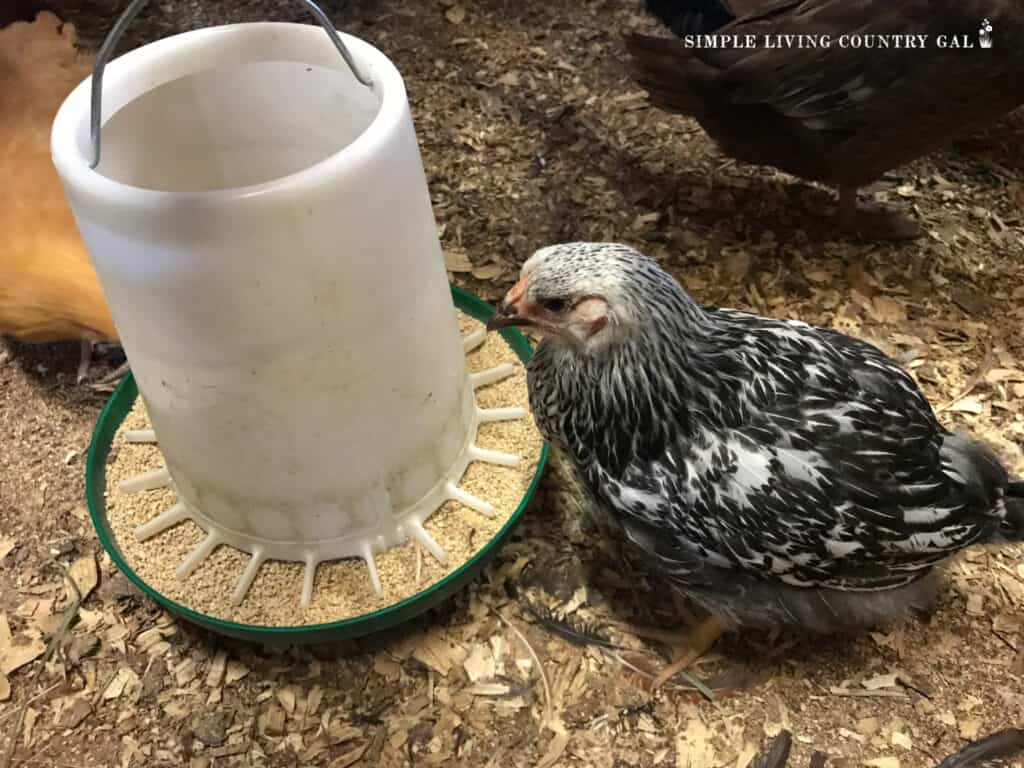how to keep chickens disease free
Taking care of animals that are healthy is so much easier than dealing with health issues in your flock. That is why knowing how to keep chickens disease free is so important. Know what you can do to encourage a healthier flock that can withstand the different threats more effectively.
Easy tips on raising chickens that are healthy are more hardy wherever you live.

Keeping chickens healthy and free from disease can feel like an overwhelming challenge at times. But the good news is that with the right knowledge, understanding of basic poultry husbandry practices, and preventive steps, you can dramatically reduce the chances of your flock being affected by illness or parasites.
We’ll talk about proven strategies to keep your chickens healthy and strong so your flock can thrive even in the coldest temperatures. From how sanitation, ventilation, nutrition, and vaccinations help chicken health, as well as signs to watch for early indications of a potential issue in your birds –so you can take prompt action if needed.
What are some common issues that can affect chickens?
One of the most important things you can do to keep your chickens disease-free is to know what potential issues and illnesses they may face. Some common problems that can affect your flock include:
- Respiratory infections
- Parasites
- Bacterial infections
- Nutritional deficiencies
- Bumble foot
- Curly toe
How to Keep Chickens Disease Free
When raising chickens, keeping them disease-free is a top priority for any responsible chicken owner. By understanding potential health risks and implementing preventive measures, you can ensure that your flock remains healthy and thriving.
#1. Keep a Clean Coop
Having a space for your flock that is clean is an effective way to keep everyone healthier. This includes the coop, roost, and the nesting boxes. You can use bedding to keep smells down in between cleanings and add fresh herbs to nesting boxes. Scrape boards under roosts will make it easier for you to quickly spot clean, heavily soiled areas, more often keeping the air in the coop clean and fresh.
#2. Change Out Water Daily
Water is the source of all healthy living things, and the same is true with your chickens. Replace any water in the coop daily to encourage your chickens to drink more often. Hydration can go a long way to keeping your entire flock healthier.
Regularly change out dirty or contaminated water to prevent the spread of potential diseases and illnesses.

#3. Check their condition
Feathers can cover up a host of issues in chickens. For that reason, touching your birds routinely will help you to catch any issues before they get out of hand. Train your chickens to be handled early on so you can pick them up and pet them feeling to see if they are of good weight.
Treats and Feed for Chickens:
Manna Pro Chicken Feed | 16% Chicken Food with Probiotic Crumbles, Chicken Layer Feed | 8 Pounds


#4. Keep an Eye on Egg Production
Egg production is a good indicator of your chicken’s health. If you notice a decrease in the number or quality of eggs laid, it could be a sign of underlying health issues. Regularly monitor egg production and take note of any changes to address any potential health concerns as soon as possible.
#5. Practice Clean Habits
Biosecurity is crucial in preventing the spread of diseases and illnesses among your flock. Make sure to wash your hands before and after handling chickens, disinfect equipment and tools regularly, and limit contact with other flocks to minimize the risk of contamination. Proper biosecurity measures can help keep your chickens healthy and thriving.
#6. Provide Adequate Space
Overcrowding can lead to stress, aggression, and the spread of diseases among chickens. Ensure that your coop provides enough space for each chicken to move around comfortably. This will not only help keep them healthier but also prevent any conflicts or injuries within the flock.
How much room do chickens need?
- Inside of a coop – 4 square feet per chicken.
- On a roost – 15-18 inches per chicken.
- With nesting boxes – 1 nesting box for every 4 chickens.
- In an enclosed run – 15 square feet per chicken.
#7. Regularly Inspect and Clean the Coop
A dirty and poorly maintained coop can quickly become a breeding ground for bacteria, parasites, and pests. Regularly inspect and clean your coop to prevent any potential health hazards. This includes removing any wet or soiled bedding, repairing any holes or cracks that could let in predators, and maintaining proper ventilation. A clean coop promotes a healthy and hygienic living environment for your chickens.
#8. Give a Good Quality Feed
A good quality feed formulated specifically for chickens should make up the majority of their diet. You can also supplement with kitchen scraps, fruits, vegetables, and grains to provide extra nutrients and variety in their diet. Make sure to research which foods are safe for chickens to eat, as some items can be harmful or toxic to them.

#9. Provide More Water sources
If you free-range your flock, you will want to have a few water sources out as well as inside of the coop. Chickens tend to forget to drink unless they see the water nearby, and having a few bowls out and around will keep them hydrated throughout the day.
#10. Monitor for Signs of Illness
Despite your best efforts, chickens can still get sick. It’s essential to regularly monitor your flock for any signs of illness or injury and take immediate action if necessary. Keep an eye out for changes in behavior or appearance, such as decreased activity, abnormal droppings, or ruffled feathers. If you notice any concerning symptoms, consult a veterinarian for proper diagnosis and treatment.
#11. Protect Against Predators
Chickens are natural prey animals and can easily fall victim to predators such as raccoons, foxes, and hawks. To keep your flock safe, make sure their coop and run are secure and predator-proof. This includes using sturdy fencing, covering windows and doors with wire mesh, and locking up the coop at night. You can also consider getting a guard dog or keeping a rooster to help protect your chickens from predators.
In conclusion, keeping your chickens disease-free requires a combination of proper hygiene, good nutrition, and regular monitoring. With the tips mentioned above, you can ensure that your flock stays healthy and happy. Remember to provide a clean living environment, a varied and nutritious diet, access to fresh water, and protection from predators.
More Chicken Care Resources:
You can find this post and more over at the Homestead Blog Hop!





Thanks for all the wonderful tips! We’ve definitely had our history of chicken illnesses and prevention is definitely better than dealing with it when it hits!
Thanks for sharing on the Homestead blog Hop Too 🙂